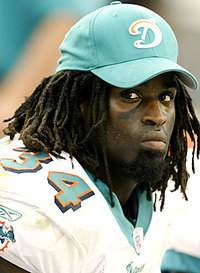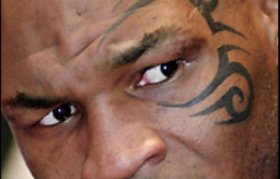Most children fall into five basic personality types that stem from inborn physical characteristic: the sensitive child, the self-absored child, the defiant child, the inattentive child, and the active/aggression child. THE HIGHLY SENSITIVE CHILD
THE HIGHLY SENSITIVE CHILD
A highly sensitive child is often bright, articulate, creative, and insightful, easily able to tune into other people and their feelings. He/She may display a deep sense of empathy and compassion for other people. Perhaps he/she is a budding artist, a future novelist. And yet, he is also clingy and whiny, sometimes bossy and demanding. He throws long tantrums over seemingly minor issues. He shrieks furiously when you leave him with a babysitter, even one he knows well, grabbing desperately at your legs as you leave 
THE DEFIANT CHILD
Stubborn, Negative, Controlling...He can mange to turn even the simplest activity into a trial. His first reaction to virtually anything is negative. "I don't want to!" "I don't care!" "Do I have to?" He deals with his world in a bossy way. In the 1940s, Rene Spitz, a pioneering observer of young children, suggested that a child's first "no" is attempt to define himself-a way of establishing a boundary between himself and the rest of the world. Alongside stubbornness and negativism, the defiant child has enormous energy and persistance. Many defiant children are unusually clever, figuring out ways to defeat your most sophisticated arguments. 

 THE INATTENTIVE CHILD
THE INATTENTIVE CHILD
The Inattentive Child seems to flit through life, never landing in one place for long. He parents complain that she is "spacey." He forgets to tie his shoes, bring home her homework, pick up his toys. His teachers say he doesn't pay attention in school. They point out that he doesn't follow instructions or concentrate. He may make one or two scribbles on his schoolwork and then giggle and whisper with other children. At home, he wanders around, perpetually touching and picking up things. At the dinner table, he can't sit still-he bangs his knife against his plate, eats one bite, and is off. He constantly on the go, running around pushing other kids, throwing toys. He may be absent minded; you ask him why he forgot to bring his homework home for the fifth day in a row, and he says, "I was going to. I had the book in my hand. But I put it down to look at this cool game that Bobbee Bee brought in and..." An inattentive child may have trouble finding the words to describe things. Asked about her days, he shrugs. "It was fine. I guess, she says finally. She constantly changes the subject when she talks. It's difficult to have a conversation with her because he skips from one topic to another.
THE ACTIVE/AGGRESSIVE CHILD The impulsive, aggressive child is constantly on the go. He runs instead of walks, acts instead of talks. These boys and girls jump headlong into new experiences-diving in first and looking later. If they learn to use their considerable energy in constructive ways, they can be energetic, creative, enthusiastiv, charismatic-they may become athletes, piolts, soldiers, business entrepreneurs, or politicans, perhaps. At school, such a youngster could be the class rabble-rouser, throwing his pencils and books around and enticing all the other children to yell and scream, particularly when the teacher wants everyone to sit down. But he is also easily frustrated and angered and might resort to hitting, punching, and pinching to get what he wants or to express anger.
The impulsive, aggressive child is constantly on the go. He runs instead of walks, acts instead of talks. These boys and girls jump headlong into new experiences-diving in first and looking later. If they learn to use their considerable energy in constructive ways, they can be energetic, creative, enthusiastiv, charismatic-they may become athletes, piolts, soldiers, business entrepreneurs, or politicans, perhaps. At school, such a youngster could be the class rabble-rouser, throwing his pencils and books around and enticing all the other children to yell and scream, particularly when the teacher wants everyone to sit down. But he is also easily frustrated and angered and might resort to hitting, punching, and pinching to get what he wants or to express anger. THE SELF-ABSORED CHILD
THE SELF-ABSORED CHILD
The self-absored child seems to be content to amuse himself. He has a great imagination. They seem to prefer their imaginary world "make believe" to reality. They play by themselves for hours on end. When they are a little older, they become Nintendo or computer game experts and play electronic or computer games endlessly. Over time, the self-absored child might develop a negative sense of identity. "I am an unlikable person," he may conclude. "I am easily ignored or avoided. There's no point trying to talk to other people." "Nobody cares. 

"BORN TO BE LOVED; LOVE TO BE HATED!" His Anger Teaches Everybody Reality!! It's your boy BOBBEE BEE "THE HATER" aka the trouble maker from the "city of brotherly love" I am an obnoxious, opinionated, third grader whose ego is bigger than T.O.! I am an "odd"combination of Terrell Owens, KOBE Bryant, Rasheed Wallace, and Allen Iverson! by Eric D. Graham #TheRapProfessor. If you like what you are learning ($JeffreyBarnes)